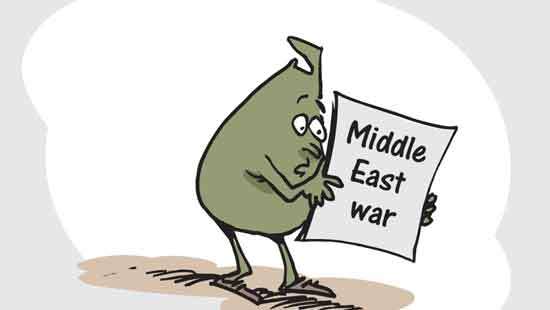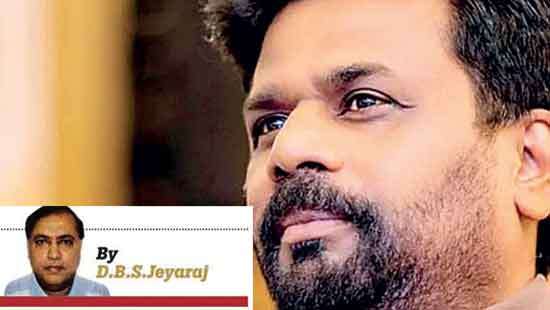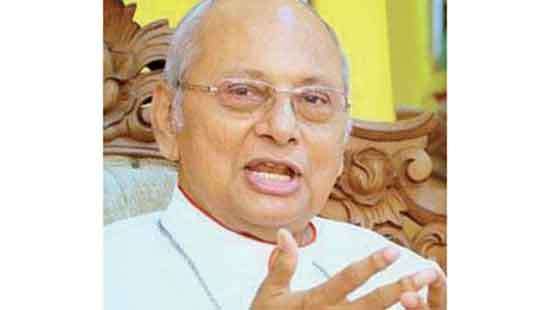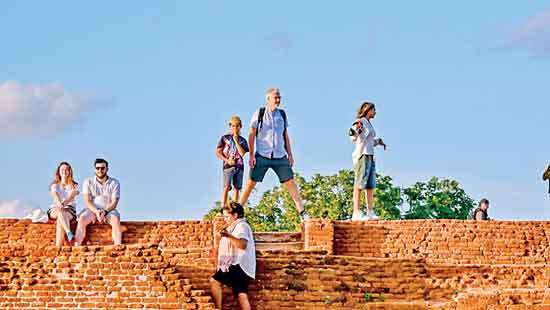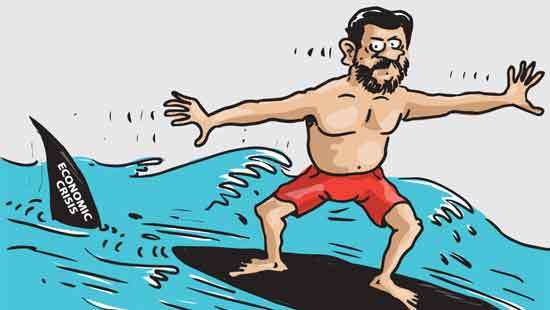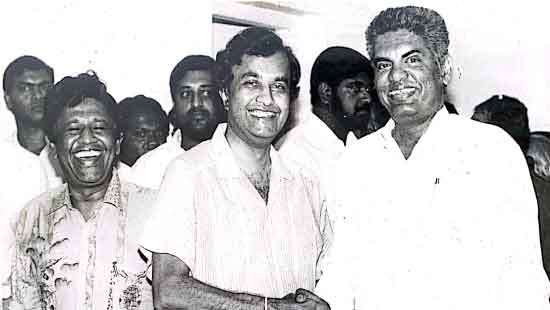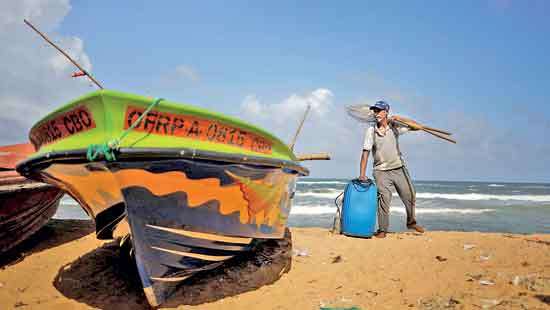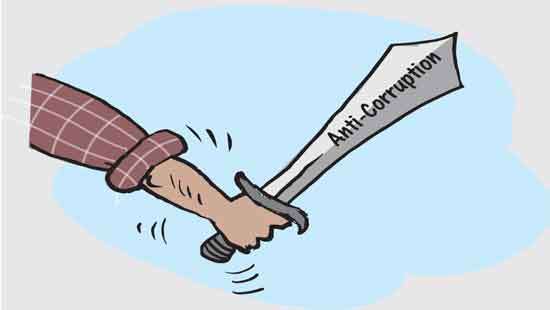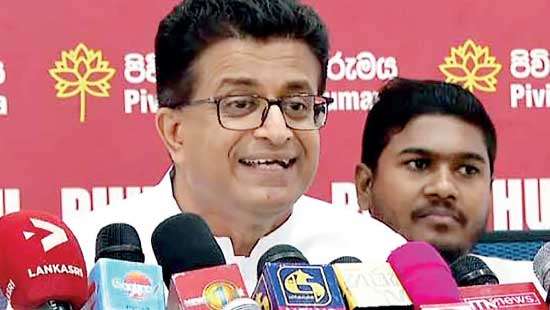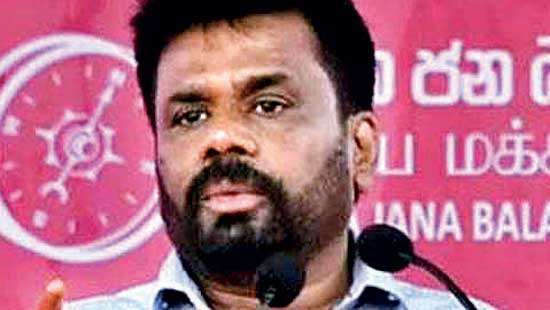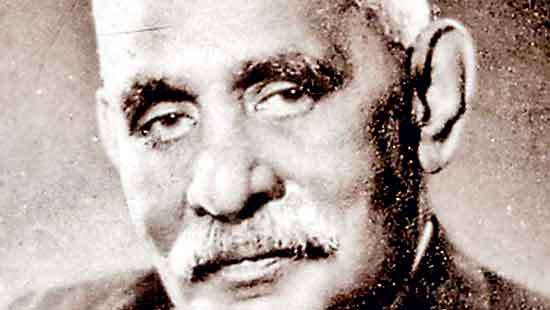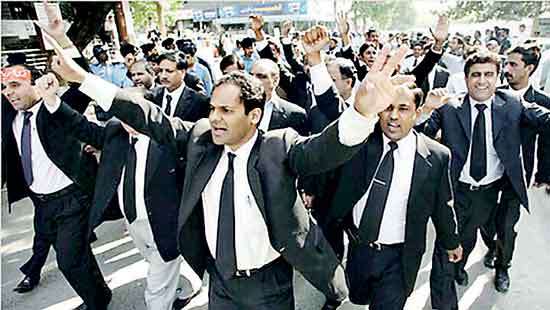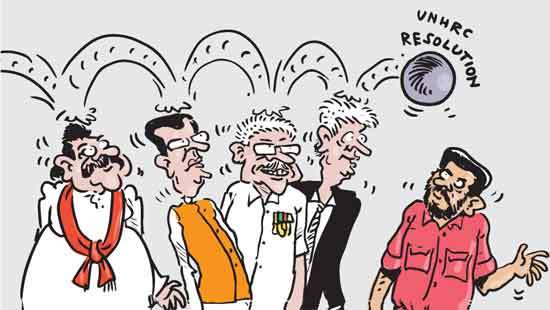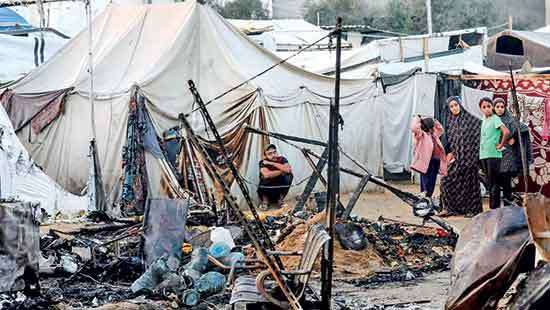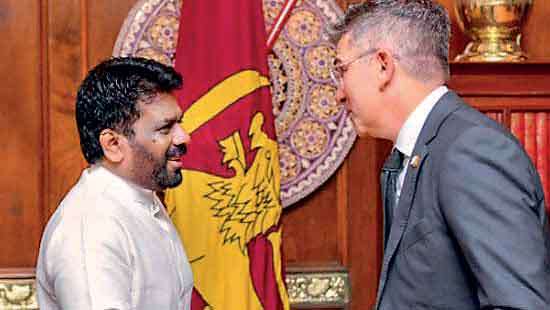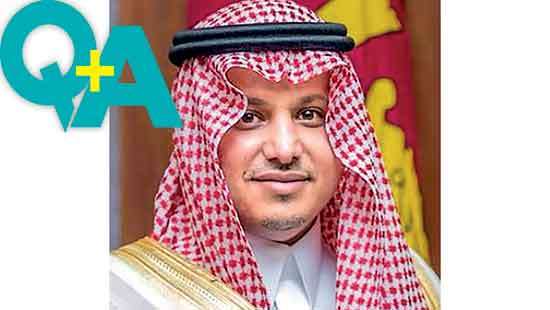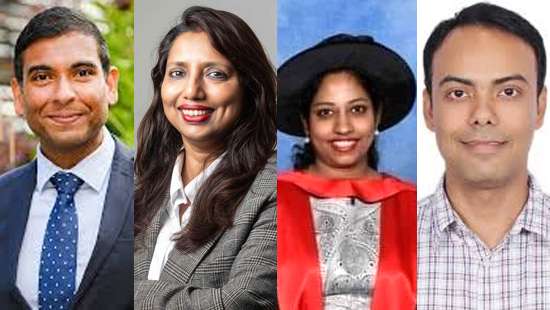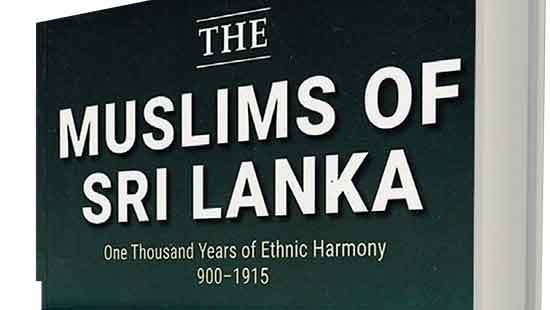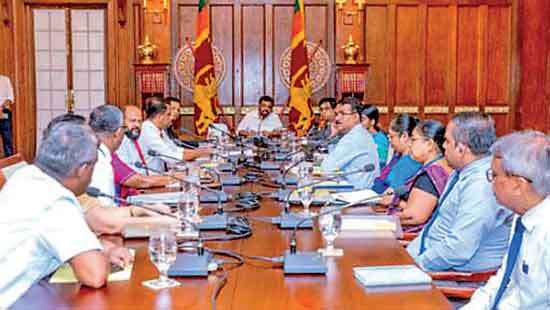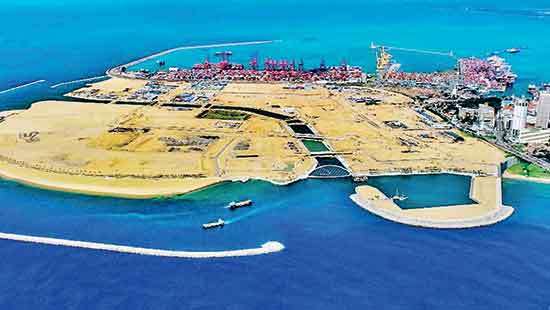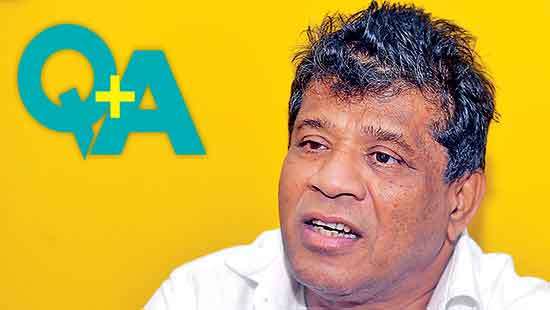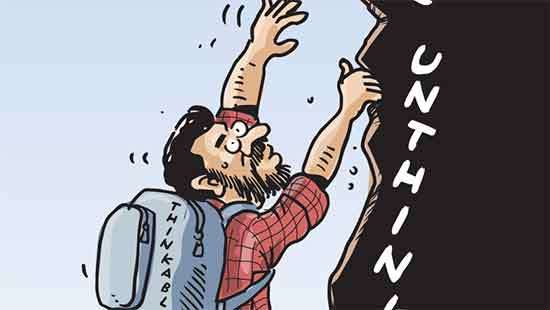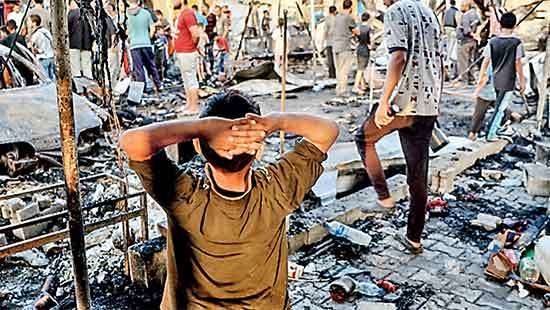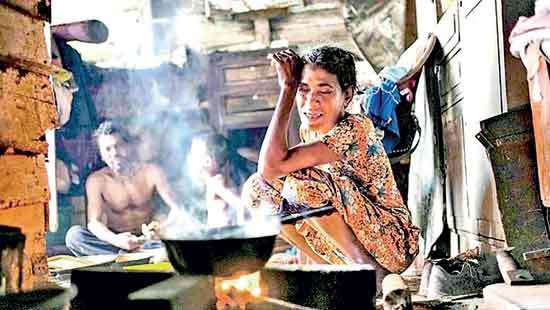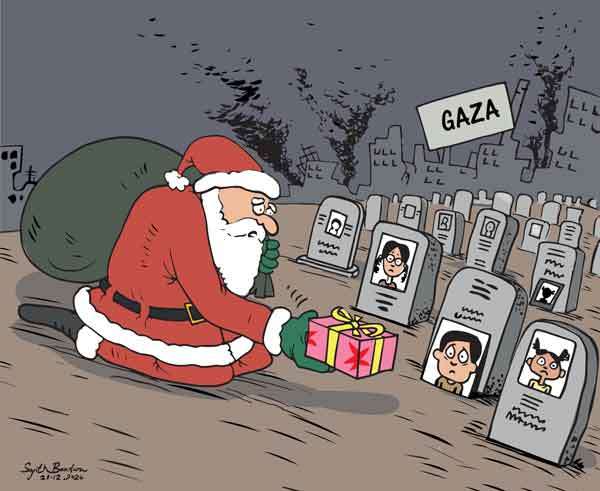Opinion
Anura Dissanayake and the Formation of the National People’s Power
26 Oct 2024
 0
0
This is the fourth part of an extended article focusing on Sri Lanka’s newly elected President Anura Kumara Dissanayake. In the first part of this article, the early years of Anura’s eventful life were delved into in some detail. In the second part, AKD’s steady growth as a political leader within the Janatha Vimukthi Peramuna (JVP) was related to some extent. In the third part, Anura’s rise to the leadership position of the JVP was recounted.
Terror attack turned into a political foot ball
26 Oct 2024
 3
3
The can of worms that was opened by the Pivithuru Hela Urumaya (PHU) leader, Parliamentarian Udaya Gammanpila with regard to the Easter Sunday attacks seems to have been overshadowed by the US travel advisory due to a purported plan by certain individuals to launch a similar attack on Israeli tourists in Sri Lanka.
Can government overcome problems of impunity and arm twisting
26 Oct 2024
 0
0
When ordinary citizens are brought before the law it is seen as a stigma, and shame. Times out of number, when officials are caught out -either embezzling funds, accepting bribes or any other offences; when produced before the court, these individuals tend to cover their faces in shame.
Continuing investigations and reports into Easter Sunday killings
23 Oct 2024
 0
0
It is over five years since the Easter Sunday terrorist attacks which left over 270 persons dead. The families of the victims in that mass killing still remain traumatised. There has as yet, been no closure to their sufferings as we Lankan’s as a whole and Catholics in particular have no idea as to who master-minded the evil deed.
The never ending clash with the UNHRC- EDITORIAL
22 Oct 2024
 2
2
The new government of President Anura Kumara Dissanayake (AKD) is encountering or is going to encounter several dilemmas some of which threaten its very survival, despite the ruling National People’s Power (NPP) or the main constituent of it, Janatha Vimukthi Peramuna (JVP) having not been responsible for them.
World Bank’s Development Trap for Sri Lanka
21 Oct 2024
 0
0
The Western establishment has many ways to corner developing countries like Sri Lanka and set their economic trajectory in the interests of global capital. I have written extensively about the role of the IMF in trapping Sri Lanka with financialised commercial borrowing and austerity measures. In this column, I address the other powerful twin from Washington, the World Bank, and its economic policy-making role in Sri Lanka.
Conflicting reports and Lanka’s position re- sanctions on UNSG
21 Oct 2024
 0
0
Sri Lanka has always backed the cause of the State of Palestine and the Palestinian people. Whichever government was in power, unlike India which more recently has refrained from condemning Israel’s genocide in Palestine, Sri Lanka has been consistent in its support of Palestinian rights.
Sri Lanka, Saudi Arabia to boost trade, investments ties
21 Oct 2024
 0
0
Diplomatic relations between Saudi Arabia and Sri Lanka were established in 1974. Sri Lanka opened its Embassy in Jeddah in 1983 and later relocated to Riyadh in 1985. From 1977 to 1995, the Kingdom’s Embassy in New Delhi oversaw bilateral relations between the two nations, until Saudi Arabia opened its Embassy in Sri Lanka.
How Tertiary Education Institutes can Improve Student Engagement Levels in S. Asia?
19 Oct 2024
 0
0
In South Asian countries, many tertiary education institutions face challenges in maintaining and improving student engagement. The following document outlines strategies that these institutions can implement to enhance student engagement. The purpose of this article is to share the perspective of four prominent researchers on how to improve tertiary education levels with special reference to South Asian countries.
Dr. Lorna Dewaraja’s book ‘The Muslims of Sri Lanka’ Muslims’ role in Lankan politics and the magnanimity of Sinhala Kings
19 Oct 2024
 0
0
Sri Lanka’s history of peaceful relations that had existed between the Sinhalese and the Muslims, stands as a contrast against the mass destruction taking place in the Middle East in the name of ethnicity and religion.
NPP’s struggle against corruption
19 Oct 2024
 0
0
A record number of front-line politicians has opted out of the November 14 Parliamentary election. Despite over fifty MPs who represented the last Parliament having so evaded the directed contest at district level some of them are anticipating to enter the House through the National List of their respective parties or the parties where they finally took refuge in, on the eve of the September 21 Presidential election.
Is government mistaking the masses for asses
19 Oct 2024
 0
0
In the run-up to the presidential election of 21st September this year, the JVP/NPP political combine was at the forefront of highlighting the problems of the poorer sections of our country. It campaigned on a platform of anti-corruption and protecting the poor and disadvantaged.
Colombo Port City: A Persistent Albatross for Sri Lanka?
18 Oct 2024
 1
1
With the victory of Anura Kumara Dissanayake (AKD), Sri Lanka sees a ray of hope in eradicating corruption and increasing political accountability. The people of Sri Lanka are confident that it will be their interests that will be paramount for the new President.
“Never thought Sajith Premadasa would be a weak leader”– Ajith Mannapperuma
18 Oct 2024
 7
7
I have been working as the SJB Gampaha District organiser for 20 years. I served as the Mayor for seven years, four years as a provincial councilor and 12 years as a Member of Parliament from the Gampaha District
Why AKD must achieve the unthinkable
18 Oct 2024
 4
4
Sri Lanka is now trying to walk on a straight line in terms of putting the country in order. Many moons ago and many governments before this, ambitious people who walked ‘crooked’ and disregarded ethics entered Parliament easily. Now we see the new government in place attempting the unthinkable; trying to reinvent a nation that many thought didn’t have a future.
When the West’s moral decadence fuels Gaza war
18 Oct 2024
 0
0
With each passing day, the West Asian crisis is worsening and expanding. The crisis has the potential to engulf the entire region, resulting in disastrous consequences for all countries, particularly those struggling economically, such as Sri Lanka.

SL exits ’Restricted Default’ rating
17 Oct 2024
 0
0

SriLankan airlines hosts agents’ tour to Gan island
17 Oct 2024
 0
0

First Capital crowned as Brand of the Year at SLIM Brand Excellence 2024
17 Oct 2024
 0
0

Bitcoin surges past $100k for first time
17 Oct 2024
 0
0

USAID, CBL group to boost SL’s coconut industry
17 Oct 2024
 0
0

crisis spirals, Govt. extends deadline for imports till January 10
17 Oct 2024
 0
0

Suspect dies after collapsing in Chilaw Police custody
17 Oct 2024
 0
0

Dayasiri defends use of President’s Fund, rejects misuse allegations
17 Oct 2024
 0
0


